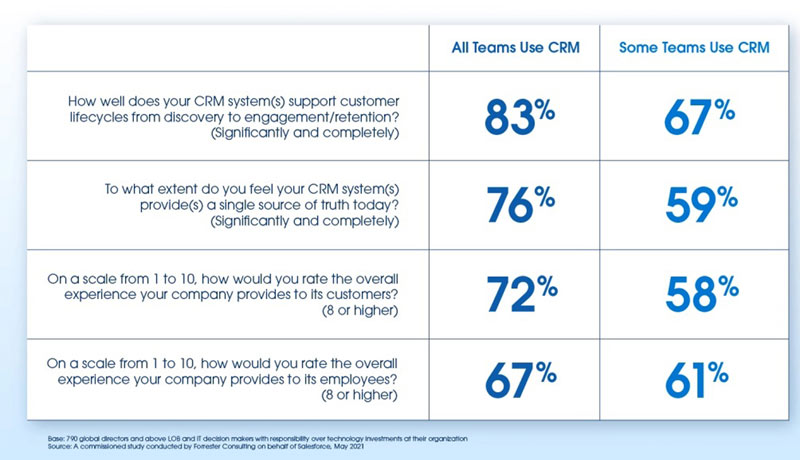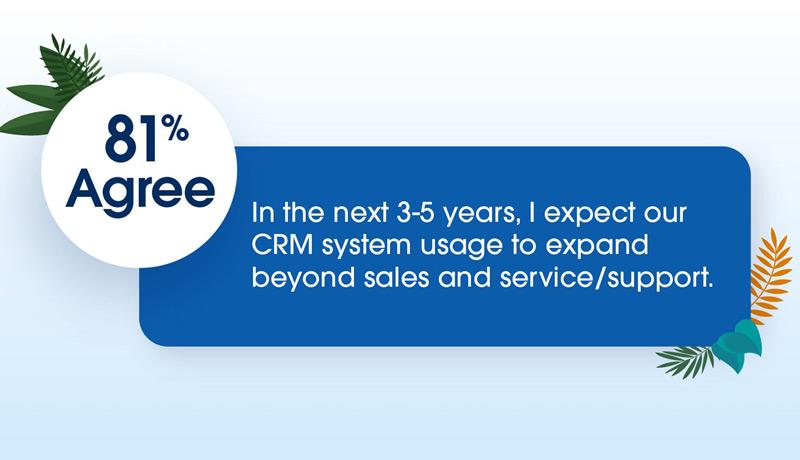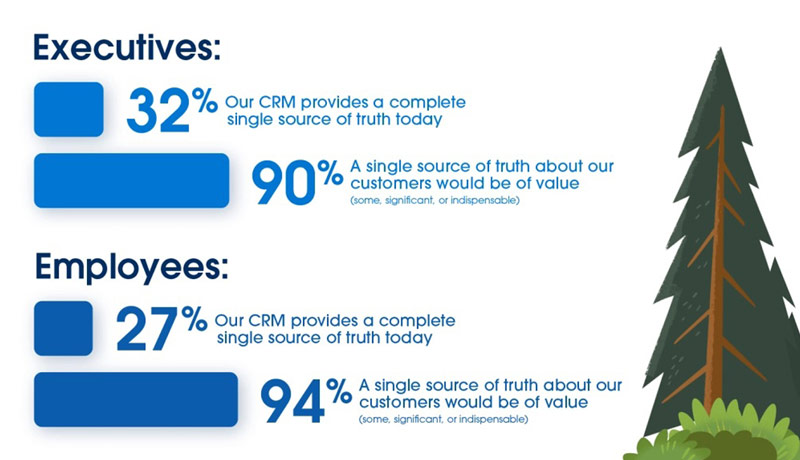
Research by Forrester Consulting commissioned by Salesforce revealed the requirement of a consolidated CRM strategy to enhance business adaptability. The survey took almost 800 executives and 1500 CRM users in 15 countries to better understand the trends followed in CRM technology success and innovation.

Driving the news: According to the study, companies are embracing a new generation of CRM use and strategy that connects data across departments to automate processes, drive personalization, and support productivity from anywhere in order to meet ever-changing customer expectations and more flexible workplace environments.
Fast facts: Technology, particularly CRM systems, is used by both business executives and staff to generate customer growth, corporate productivity and reliability, and market differentiation. Despite the substantial market upheaval, Forrester discovered that CRM system utilization has stayed fairly steady over the last couple of years, and, frankly, isn’t meeting expectations:
The following approaches are used by organisations that are “doing it right” when it comes to CRM technology and strategy:
When CRM systems are leveraged across teams to serve the complete customer lifecycle rather than being separated by department, there are concrete business benefits:
Zoom out: Companies are increasingly seeing CRM as a growth engine for the whole customer lifecycle, and they’re altering their strategies appropriately.

Because their CRM systems were not well-integrated and accessible, 57% of executives said they struggled to maintain high CX with the shift to remote work.
Productivity, information access, and communication and coordination issues are among the top concerns employees and executives face as a result of the shift to remote work.
Employees are better able to negotiate a remote or flexible workplace while continuing to provide excellent customer service when unified, accessible CRM systems are the core tool in their toolset. Executives can also more easily flip their go-to-market strategy during times of change or uncertainty.
Only around a third of executives believe their CRM already delivers a complete single source of truth about their clients, while 90% believe it would be beneficial. Creating excellent CX is difficult without this entire view of a customer across all departments and inputs.
When it comes to CRM systems, trust and security are now the most important factors for executives to consider. Customers demand a trustworthy connection with privacy and consent, and for a good cause.
By 2023, 79 percent of businesses will use AI to automate customer/prospect outreach, and 78 percent will use AI-powered automation to relieve employees of day-to-day tasks.
To add more value to their organisations, 53% of employees think they need improved onboarding and training on how to use their CRM system.